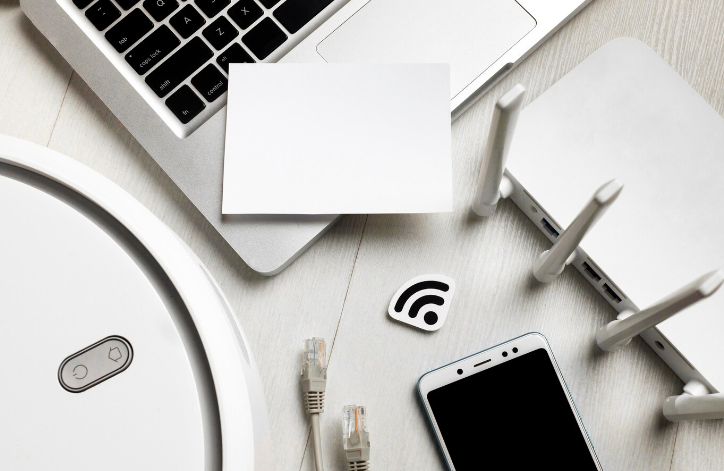Introduction
Wi-Fi networks have become an indispensable part of our daily lives, providing us with the convenience of wireless connectivity at home, work, and public spaces. However, lurking behind the convenience and speed of Wi-Fi are hidden dangers that can affect your security, privacy, and even health. Are you prepared to face these unseen risks? This article will delve into the dark side of Wi-Fi networks, uncovering the threats they pose and how you can protect yourself.

Security Vulnerabilities
The Risk of Hacking
Wi-Fi networks are prime targets for hackers due to their widespread use and varying levels of security. Weak passwords and outdated encryption methods make it easier for cybercriminals to infiltrate your network. Once inside, they can steal personal information, monitor your online activities, and even take control of your devices.
Man-in-the-Middle Attacks
A common tactic used by hackers is the Man-in-the-Middle (MITM) attack. This occurs when a hacker intercepts the communication between your device and the Wi-Fi router. By doing so, they can eavesdrop on your data, alter communications, and steal sensitive information such as login credentials and credit card numbers.
Public Wi-Fi Pitfalls
Public Wi-Fi networks, such as those in cafes, airports, and hotels, are notoriously insecure. These networks are often unencrypted, making it easy for hackers to intercept data. Using public Wi-Fi without a VPN (Virtual Private Network) leaves you vulnerable to a range of cyber threats.
Privacy Concerns
Data Collection
Wi-Fi networks can be used to collect data about your online activities. Internet Service Providers (ISPs) and even some public Wi-Fi providers can monitor and log your browsing history, app usage, and more. This data is often sold to advertisers, compromising your privacy.
Tracking and Surveillance
Advanced Wi-Fi technologies can track your location and movements. Retail stores, for example, use Wi-Fi to monitor customer behavior, such as how long you stay in certain areas. While this can be used for improving services, it also raises significant privacy concerns.
Smart Devices and Privacy
Smart home devices connected to your Wi-Fi network can also be a privacy risk. These devices, from smart speakers to security cameras, often collect and transmit data. If not properly secured, they can be hacked, giving intruders access to your personal life.
Health Risks
Electromagnetic Radiation
Wi-Fi networks emit electromagnetic radiation (EMR), which has sparked debates about its potential health effects. While the World Health Organization (WHO) states that EMR from Wi-Fi is generally safe, some studies suggest long-term exposure may have health implications, such as increased risk of cancer or other health issues.
Electrosensitivity
Some individuals report experiencing symptoms such as headaches, fatigue, and dizziness when exposed to Wi-Fi signals. This condition, known as electrosensitivity, is not universally recognized by the medical community, but it highlights the need for further research into the health impacts of Wi-Fi.
Mitigating the Risks
Strengthening Security
To protect your Wi-Fi network from cyber threats, use strong, unique passwords and the latest encryption methods (WPA3). Regularly update your router’s firmware to fix security vulnerabilities. Consider using a firewall and disabling features like WPS (Wi-Fi Protected Setup) that can be exploited by hackers.
Using a VPN
A VPN encrypts your internet traffic, making it much harder for hackers to intercept your data. This is especially important when using public Wi-Fi networks. Choose a reputable VPN service to ensure your online activities remain private and secure.
Monitoring and Limiting EMR Exposure
While definitive proof of health risks from Wi-Fi is still lacking, it’s wise to take precautionary measures. Limit your exposure by turning off your Wi-Fi router when not in use, especially at night. Position your router away from areas where you spend a lot of time, such as bedrooms or home offices.
Conclusion: Facing the Unseen Dangers
The convenience of Wi-Fi networks comes with hidden dangers that can impact your security, privacy, and health. By understanding these risks and taking proactive measures, you can protect yourself and enjoy the benefits of wireless connectivity with greater peace of mind. Strengthen your network security, use a VPN, and be mindful of potential health impacts to navigate the unseen dangers of Wi-Fi networks effectively.
